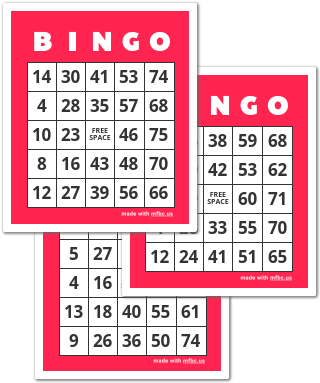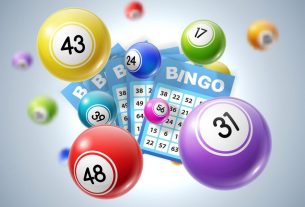The game of bingo was developed in Italy and remains one of the best games developed for human consumption. In the United Kingdom, bingo originated in the early Middle Ages with an Italian system of play called the “scottshire game.” The game was introduced to Europe by the Romans, who also developed its rules and structure. The word “bingo,” literally means “good night,” came into use from the Spanish word bola, which meant “bad night.” In the United States, bingo evolved over the years as a card game, and today it is commonly played in casinos, bingo halls, and social gatherings. In the United Kingdom, the most famous version of bingo comes in the form of the UK’s version of lotto, called the Lotto Max.
In the United States, bingo evolved into two main variants: Regular bingo, which is played between players similar in age and social status; and “lottery” or “bingo” games, which are usually played by professional gamblers. In the UK and many other countries around the world, the word “bingo” now refers to any version of card games, with the exception of the pre-drawn numbers. Many people consider online bingo to be a variant of regular bingo, since it uses random numbers generated by a computer program rather than a real set of cards. Players combine numbers freely and may win cash prizes or other awards if they guess the correct number combination. Many bingo websites offer a money-back guarantee if a player is unsatisfied with his/her bingo results.
Since bingo evolved from pre-drawn cards, the game is commonly referred to as “machine” bingo. In regular bingo games, players would write on a card, such as a name, address, and phone number, indicating what cards to remove from their hands and what numbers to replace them with on new cards. As new jackpot numbers are drawn, these previous numbers will turn up on new cards and so on. If all previous winning numbers are not used on new cards, the game will continue to the next jackpot selection. This is referred to as the “hot” bingo or “hot” jackpot.
In “quick” bingo games, as the name implies, the action is instantaneous and there is no wait required to mark a winner. The player contributes his/her own numerical contribution to the winning number(s) and thus is awarded the jackpot prize. Unlike regular bingo games, in quick bingo, the jackpots are immediately placed in designated holes in the bingo halls, and the winner is announced as the final result. The winner is usually the last occupant of a particular hole.
In a free-standing bingo hall, the player numbers are arranged in a straight line, starting with the ones placed on the topmost position. As each number is called out, the corresponding number in the straight line will fall off and be replaced by the following number in the line, until finally the desired numbers are called out. Thus, free-standing bingo halls keep the numbers in constant positions, making it easy for players to reach the required numbers.
With a regular bingo card deck, players can manipulate the numbers they wish to call out on their own, without waiting for someone else to decide for them. For instance, if a player wishes to get the jackpot prize after only one round of play, he could choose to do so by calling out three numbers from the straight line directly above the ones he needs to call, and hoping that the others will follow suit. Then, as each number is called out, the corresponding numbers in the straight line will drop off and be replaced by the next number in line. Thus, instead of calling out 4, the player can choose to drop off three numbers in the straight line, leaving four free spaces on the card. Of course, this is not recommended when playing in real bingo rooms, since there are more skilled players who will see through such methods and easily figure out the pattern easily.




